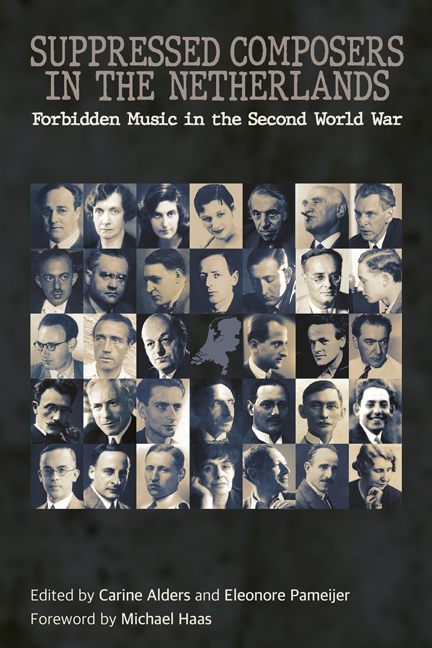25 - Samuel Schuijer
Published online by Cambridge University Press: 09 May 2024
Summary
On 11 December 1942, Samuel Schuijer was murdered in Auschwitz. His home and music school had been plundered by the Nazis. With the loss of his life and the destruction of his belongings, all traces of this significant Dutch musician seemed to have been obliterated. But in the 1990s, a group of children in The Hague found a box containing music manuscripts, waiting for the bin lorry. They took their treasure home, and it became the first step in rediscovering a lost fragment of Dutch music-history.
Samuel Schuijer was born in The Hague on 9 September 1873, the son of Roosje van Kam and Abraham Schuijer. The family had a jewellery shop at Heerengracht 18. Five of the nine Schuijer children became professional musicians. Samuel studied violin, cello, bassoon and music theory at the Royal Conservatoire in The Hague. Shortly after graduating, he worked primarily as the principal bassoonist in various Dutch orchestras and also made a European tour with the Eduard Strauss Orchestra as its principal solo bassoon. In 1894, he married Elizabeth Alter, an opera singer and actress. They had three sons: Abraham, who became a pianist, Marinus, who died in infancy, and Louis, who became a cellist.
In 1902, Schuijer was appointed as the conductor at the opera house in Ghent, Belgium, for opéra comique and operetta, and he also worked for some time in Paris. He settled permanently in The Hague in 1916, where he conducted the Kurhaus Orchestra. During the evening suppers at the luxurious Kurhaus Hotel, he performed into the early hours with the much-loved cabaret artists Louis Davids and Margie Morris; the trio became known as ‘he, she and the piano’. From 1918, he was second Kapellmeister and répétiteur of the French opera in The Hague. Schuijer acquired a reputation as a conductor, composer and violinist, and as the proprietor of Sam Schuijer's Music School.
In the first decades of the twentieth century, Schuijer composed numerous songs ‘in the popular genre’, for which he received awards from the Flemish Willemsfonds. And although his own music dramas and operas were performed successfully during this period, his compositions did not earn enough to support his family.
- Type
- Chapter
- Information
- Suppressed Composers in the NetherlandsForbidden Music in the Second World War, pp. 231 - 238Publisher: Boydell & BrewerPrint publication year: 2024



